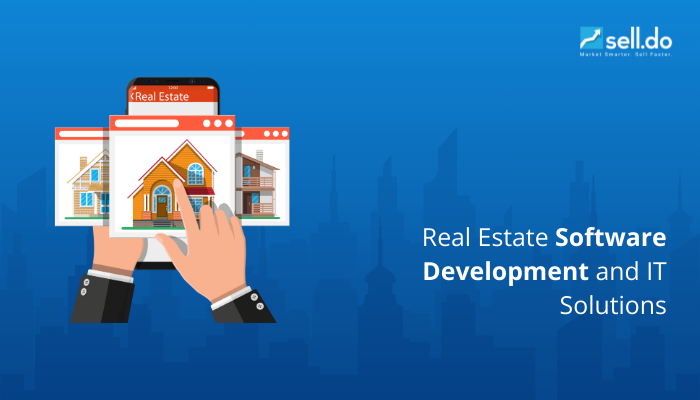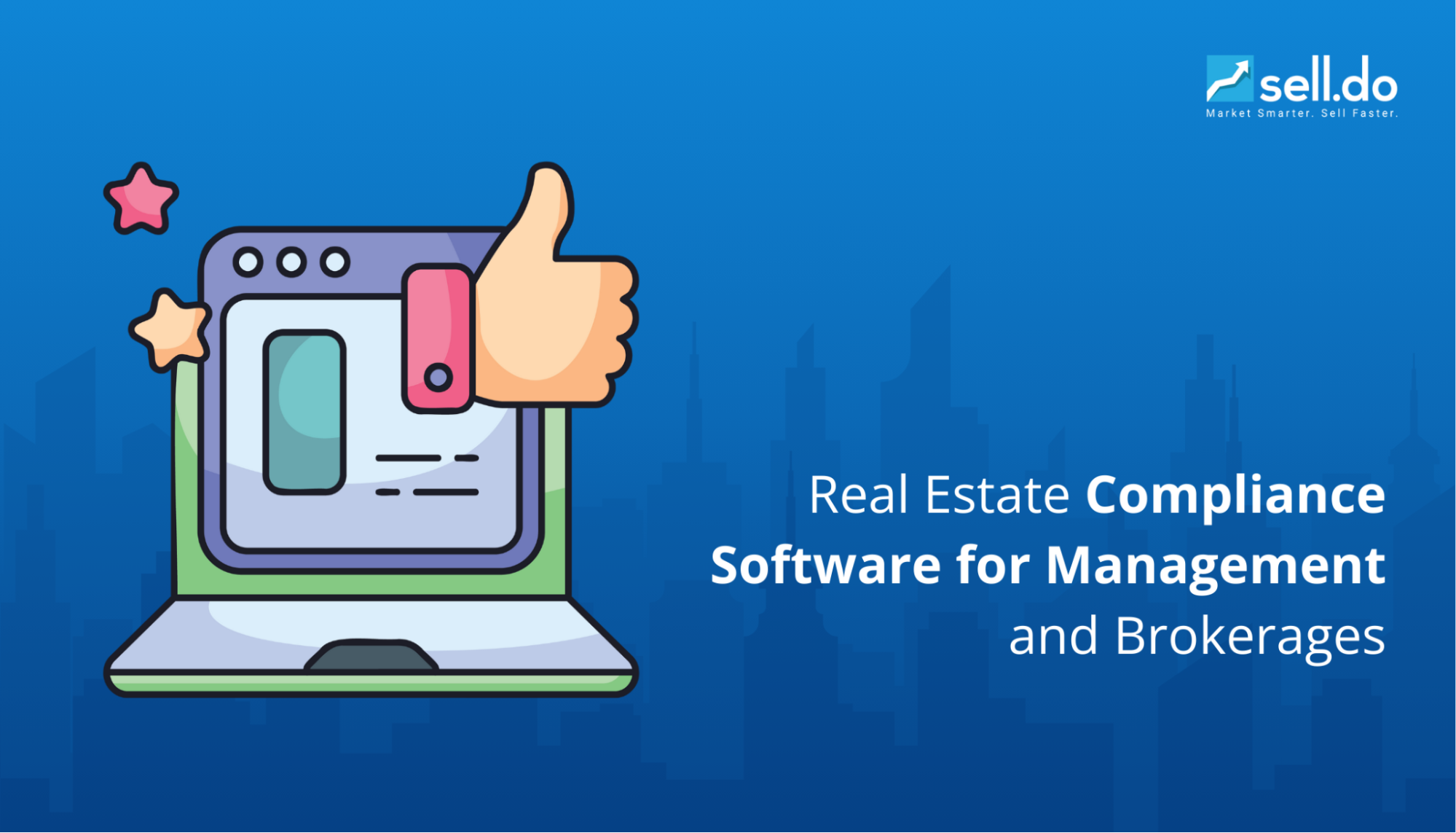Big Data is already a growing trend, impacting many industries, and the real estate industry is no exception. The use of Big Data in the real estate industry is already propelling many new trends and creating new avenues. With the power of data, the real estate industry can get accurate insights into customer behavior, buying patterns, expectations, etc., and use this information to reveal consumer trends, real estate pricing models, and customer preferences.
This blog will look at the key reasons why Big Data and real estate go hand-in-hand in today's digital evolution. It will also try to answer why real estate CRM software is a must in the industry, thanks to the rising need for granular customer data.
Understanding Big Data:
Big Data allows organizations to work with large amounts of data that can be harnessed to improve customer satisfaction, analyze customer feedback, and make data-driven business decisions. Today, 2.5 quintillion bytes of data are being produced every day, requiring a more voluminous and advanced data processing requirement. Thus, big data combines large amounts of structured and unstructured data that can be mined for advanced analytics and information.
But while Big Data enables organizations to process large amounts of data and create structured analytics, it is not just the quantity that gives it the name Big Data. The term also refers to working with large amounts of data and leveraging advanced algorithms and rules that effectively monitor data analysis, reporting, and data visualization.
The Dynamics of Big Data In Real Estate:
One of the many ways Big Data in real estate is driving a change is its use in optimizing processes, crafting customer-centric business models, and managing Human Resources effectively. Traditionally, most of these decisions were made based on the experience and gut instinct of the realtor, which is not a practical approach today.
Now, real estate data is being effectively leveraged to help:
- Meet the demands of the buyers,
- Provide accurate forecasting of price trends, and
- Increase customer satisfaction.
Here is a detailed look at some ways through which Big Data in the real estate industry is helping to extract valuable insights & make data-driven decisions.
-
Better Decision Making:
![Mask Group 2.png]()
The most important use case of Big Data in real estate is leveraging multiple available data points to create effective and efficient data-driven business decisions.
According to a McKinsey report, Big Data and machine-learning models can predict rent figures with a 90% accuracy rate, using simple parameters like household income, the year the property was built, locality, and other data points.
Thus, real estate firms can use Big Data not just to improve their business decisions and even use it to forecast market fluctuations based on historical and real-time data. The accurate predictions enable them to provide customers with a more low-risk and high-reward opportunity, thereby improving customer trust in the brand.
-
Better Cost Cutting:
![Mask Group 2.png]()
Big Data in the real estate industry can help cut costs in more than one way. Data analytics enables businesses to create a more data-entered process by understanding optimizations in multiple functions such as tracking spending on marketing and advertising, improving the sales funnel, or detecting inefficiencies in internal processes. This, in turn, enables them to reduce costs by managing resources, time and processes better.
-
Increase In Productivity:
![Mask Group 2.png]()
Big Data enables businesses to detect inefficiencies in processes, which can be used for external and internal process optimization. Thus, organizations can automate several repetitive processes and improve efficiency overall, thereby reducing costs.
Real estate firms can target and pivot their strategy to focus on their best-performing assets, making the process much more productive and profitable by using actionable metrics such as deals closed per agent or the most effective customer segment.
-
Predicting Consumer Behavior:
![Mask Group 2.png]()
While the real estate developers are keen to react to the data, they must also be aware that they can predict from it too. In terms of consumers, tracking their payment schedules, age, history of owning homes, financial health, etc. can be the key to understanding and predicting customer behavior. Such data can be used to analyze potential leads and increase the probability of higher-quality leads.
-
Better Online Presence:
According to the National Association of Realtors (NAR), 43% of home buyers search for properties online before contacting a real estate agent. Also, 97% of buyers searched for properties online at some point. These numbers showcase that having an online presence is crucial for even traditional real estate firms in today’s era.
Using Big Data helps realtors improve their online presence by knowing precisely which platforms to focus on. Data analytics enables them to quickly understand which channel generates maximum leads and even get a detailed drill down on the audience type. Thus, it helps improve the brand’s overall online presence and even optimize it for higher efficiency.
-
Forecasting Market Trends:
![Mask Group 2.png]()
With the data at hand, real estate developers can keep tabs on demographics, the area in development, average salaries in the range, the rising price trends, where people are looking to invest, and much more to understand the delicate intricacies of the market and how to navigate it. This valuable information at hand will prepare them for any kind of market change and help them stay in line with the industry standards.
-
Improved Customer Service & Satisfaction:
![Mask Group 2.png]()
Data captured from online tools, social media, and other platforms can easily be stored and integrated with the best real estate CRM software. This enables realtors to create enhanced customer experiences, use insights to target potential customers, provide personalized recommendations, and improve customer service and satisfaction numbers
-
Increased & Improved Revenue:
![Mask Group 2.png]()
Big Data touches not just a particular aspect of the business but can work in multiple business areas once implemented. From price optimizations, tailor-made business strategies, targeted advertising, improved customer experiences, and higher efficiency, Big Data in real estate drives end-to-end business transformation. Thus, it gives businesses solid returns on investment and even helps them increase their revenue.
Conclusion:
Data is becoming increasingly essential and making it easier for organizations to tap into their customer’s minds, providing a more personalized and practical buying experience. The use of Big Data in real estate for analytics and personalized customer experiences will disrupt the industry and create new avenues of growth.
With the power of analytics combined with the ability to store and update customer information via real estate CRM software, realtors can now get highly granular customer data and deep insights on each parameter.
This enables realtors to leverage this information to get a higher conversion rate and alter their strategies and offerings based on customer preferences. Not to mention, it trumps traditional processes in a big way since it allows the real estate sector to provide tailor-made services to its customers.
So as we move towards the era of digitization, leveraging the technologies such as Big Data in real estate can help you improve user experience, provide personalized search capabilities and create a stellar conversion channel for booking and househunting.














Leave a comment
Comments (0)
Be the first one to comment.